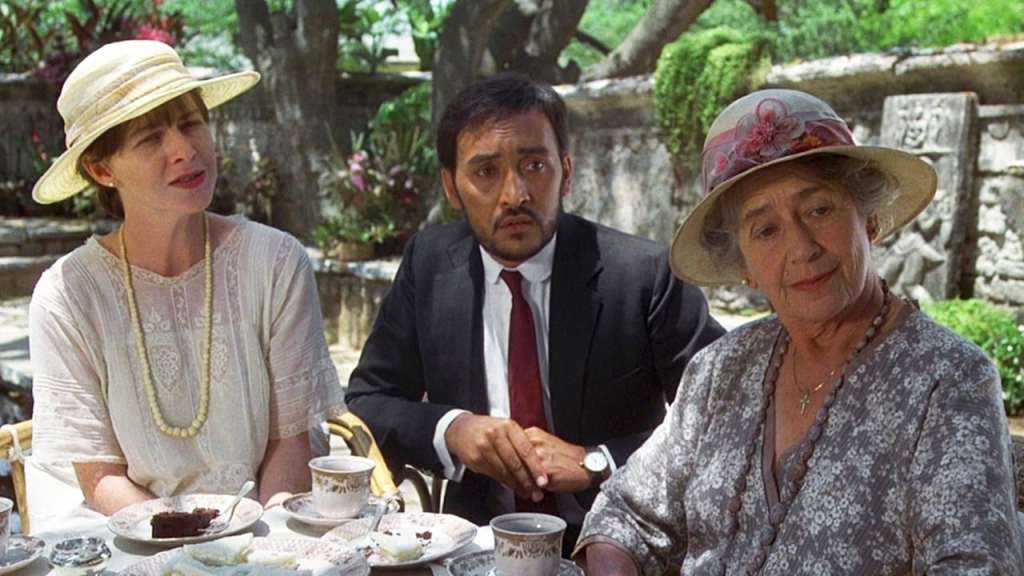A Passage to India
Director: David Lean
Writer: David Lean
Based on: E. M. Forster‘s novel and Santha Rama Rau‘s play based on the novel
Cast: Judy Davis, Victor Banerjee, Peggy Ashcroft, James Fox, Alec Guinness, Nigel Havers, Richard Wilson, Antonia Pemberton, Michael Culver
Seen on: 30.6.2020
Content Note: (critical treatment of) racism, brownfacing
Plot:
Adela (Judy Davis) travels to India with her friend Mrs Moore (Peggy Ashcroft). The two women want to visit Mrs Moore’s son Ronny (Nigel Havers) who works as a city magistrate there. In the course of their trip, the two women hope to see the “real India”, and Adela hopes that she can finally decide whether she wants to marry Ronny or not. Once they arrive, they realize how segregated the British colonists are from the Indian people, but they do manage to meet local doctor Aziz (Victor Banerjee) through the teacher Fielding (James Fox). Aziz offers to take the two women to the Marabar caves, which they readily accept. But the trip has dire consequences – above all for Aziz.
A Passage to India is a good film that hasn’t aged well in all regards. But I’d say, it’s still worth seeing.

[SPOILERS]
To mention the things that haven’t aged well first: that Alec Guinness plays an Indian in brownface is absolutely unacceptable (and actually should have been unacceptable in the 80s already). That his character is a mix of the wise mysterious native and comic relief makes things even worse. The entire thing should have not happened, period.
The there is the thing with the false accusation of sexual assault that Adela lobs against Aziz. On the one hand, it shows what power white women had (and still have) over brown man, on the other hand, a wrong accusation of sexual assault really doesn’t sit well with me. That Fielding – arguably the character the white audience is supposed to identify with most – is immediately convinced that it is a false accusation makes things even more icky. And the sudden psychosis (basically) in Adela that triggered it all, just didn’t feel very believable to me.

That being said, the rest of the film is still very excellent. Banerjee’s performance is fantastic and he completely grounds the film (despite the fact that there are some paternalistic moments to his characterization that probably wouldn’t have been there if an Indian had written the script). Ashcroft is also great – I really missed her Mrs Moore when she basically disappears halfway through the film (another excellent turn showing how little white women are willing, or even physically able, to use their privilege to help brown people).
The film is obviously very critical of colonialism, but here again, the criticism maybe falls a little short at times and would look different if it had been done today. But at least the film has its heart in the right place.

Summarizing: Worth seeing.